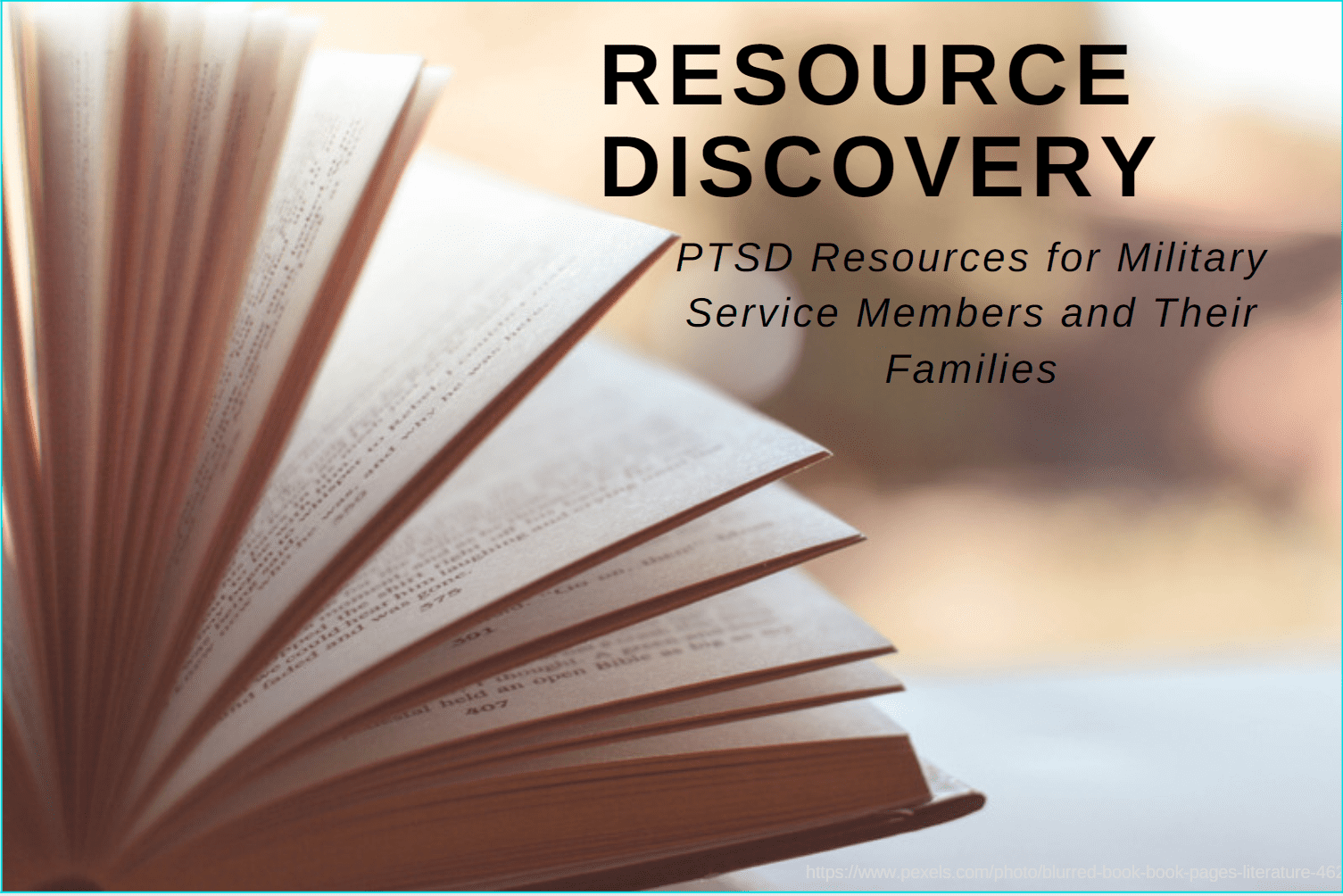Post-Traumatic Stress Disorder is all too common when talking about combat situations and the experiences of military service members. According to the U.S. Department of Veteran Affairs, “As high as 20 percent of those that served in Operations Iraqi Freedom and Enduring Freedom experience PTSD in a given year” (2018). In comparison, “About 15 percent of those that served in the Gulf War (Desert Storm) and as possibly as high as 30 percent of those that served in Vietnam have had PTSD at some point in their life.” (2018).
With such high percentages of military service members and veterans who have dealt with PTSD, what are some of the resources and breakthroughs that are happening today to combat the effects of PTSD? We wanted to share a handful of resources that can help with the effects of PTSD. These tools can also be utilized by professionals working with military families.
Resources Refresh
The first batch of resources comes from the National Center for PTSD at the U.S. Department of Veteran Affairs. Their Apps, Videos, and More webpage highlight tools and resources they have compiled to help with PTSD. This includes several apps for iOS and Android like PTSD Coach, a Mindfulness Coach, and Vet Change, which helps service members and veterans manage alcohol use/addiction.
One such app is the PTSD Coach, which includes information about PTSD and highlighting treatments that work. The app also includes tools for screening and tracking symptoms, as well as ways to handle stress and direct links for support from medical and mental health professionals. The PTSD Coach is also great for managing troubling symptoms related to sleep, trauma reminders, and anger.
Another great stride in the work to help mitigate the effects of PTSD is the NightWare Apple Smartwatch app. In this article from NPR, Tyler Skluzacek talks about his work to create a smartwatch app to help those struggling with PTSD. Inspired by his dad, who served in Iraq in the U.S. Army, Tyler wanted to help service members and vets like his dad who suffers from nightmares related to PTSD. The idea was to create an app that would make the smartwatch vibrate to gently wake up the wearer when it recognized increased heart rates, signs of a bad dream. This functions much like the way service dogs are trained with their owners; to recognize a bad dream and nudge their owner awake to disrupt the nightmare. The NightWare Apple Smartwatch app is still in the testing phase, but hopefully will be available soon. Read this NPR article to find out more.
Finally, be sure to utilize webinars, training, and resources right here within OneOp that highlight the importance of knowing the prevalence of PTSD and how to manage its impact on families.
References
National Center for PTSD (2018). “How Common is PTSD in Veterans?” Retrieved from: https://www.ptsd.va.gov/understand/common/common_veterans.asp#
Overland, M.A. (2020). NPR. “He Designed A Smartwatch App To Help Stop His Dad’s Nightmares.” Retrieved from: https://www.npr.org/2020/12/06/943647610/he-designed-a-smartwatch-app-to-help-stop-his-dads-nightmares?utm_medium=social&utm_campaign=npr&utm_source=facebook.com&utm_term=nprnews&fbclid=IwAR3ELJKZZZxnC_AYe4M792IMnWUm-fWKdaQXaqr72wx1aYwHhq0Zs1y3XmM
Blog Post Image:Pexels [Book by Caio, CC0]













